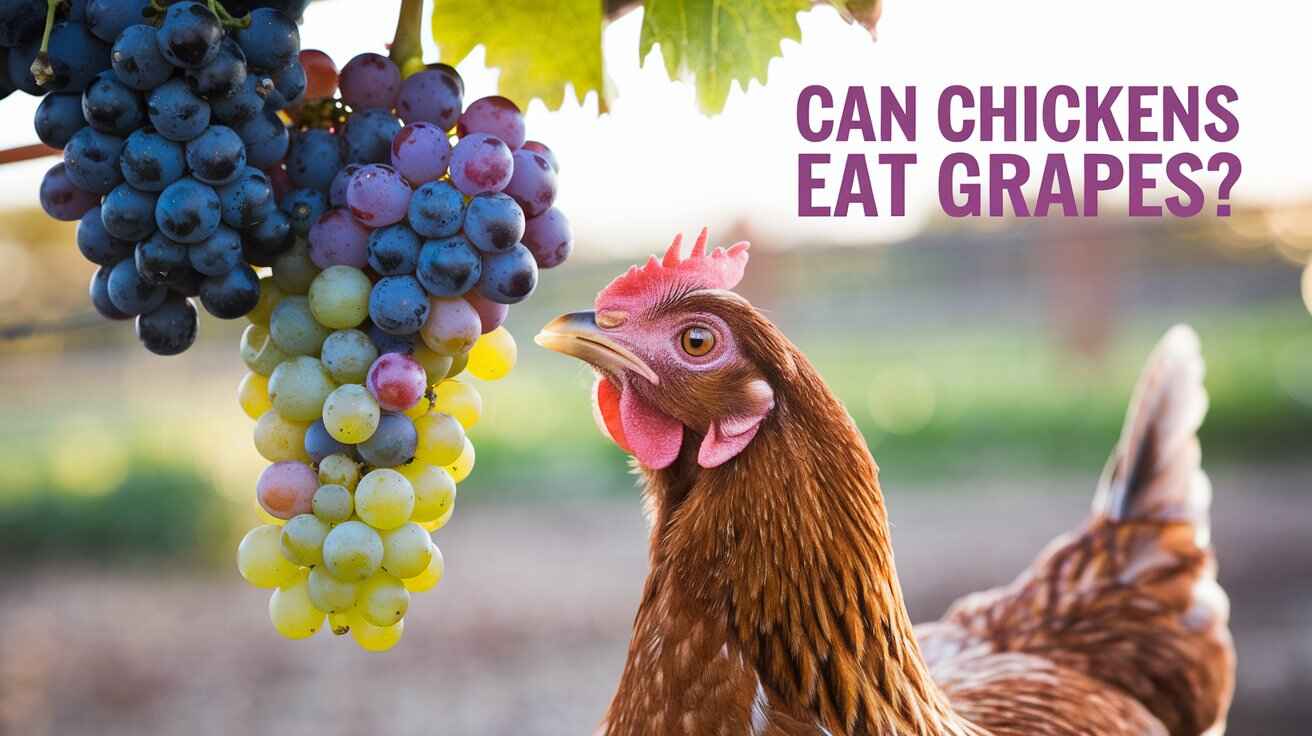When it comes to feeding your flock, you might wonder, “Can chickens eat grapes?” The short answer is yes! Chickens absolutely love these fruits, and they can enjoy them safely.
Whether you have red, green, or even purple grapes, they pose no harm to your feathered friends. Even the seeds are completely edible for chickens, unlike for dogs, where grapes could lead to kidney failure in canines.
That said, moderation is critical to maintaining a balanced diet. Offering grapes as an occasional treat is a healthy way to spice up your chickens’ meals. Pair them with other vegetables to ensure they get the nutrition they need.
Personally, I’ve seen my own chickens perk up at the sight of a juicy grape vine, pecking eagerly at the leaves and the fruit alike. It’s a joy to watch, but remember, too much of a good thing can be questionable for their overall well-being. A quick glance at their diet can help you keep things in check, ensuring their health stays in tip-top shape.
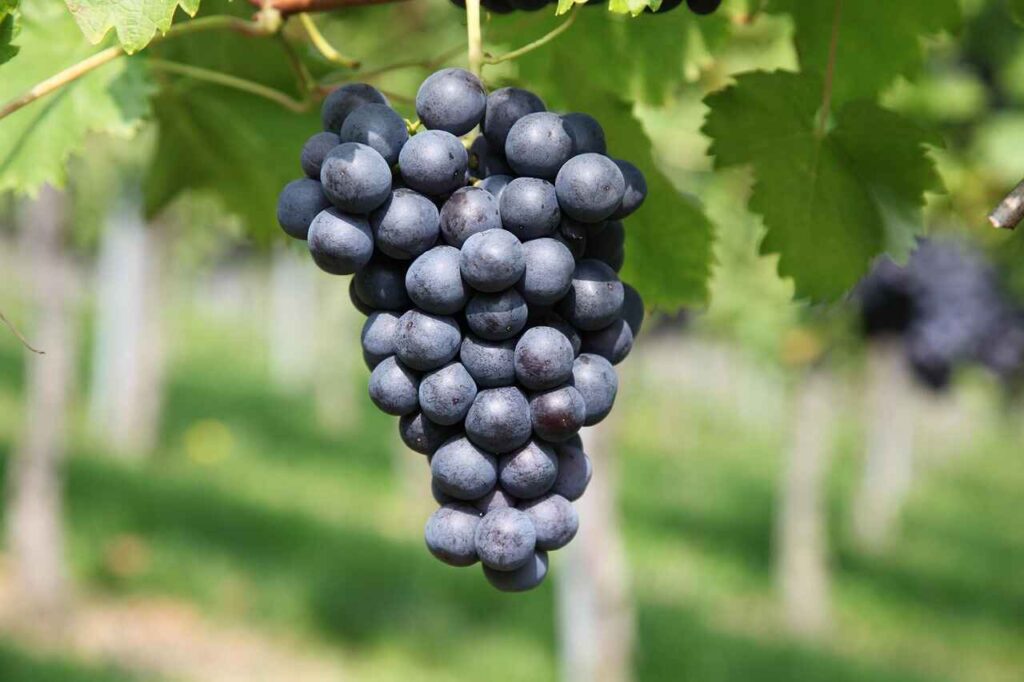
Table of Contents
ToggleCan Chickens Eat Grapes?
Chickens absolutely love grapes, and they are a safe, nutritious treat for your flock when offered in moderation. These fruits, whether red, green, or even black, are a delicious addition to their diet.
While some myths and misconceptions may suggest otherwise, it’s improbable for chickens to choke on grapes due to their specialized digestive system and gizzard.
Offering a variety of foods, including kitchen scraps like small morsels, can help improve their quality of life and make mealtime more enriching. From tiny frogs to pieces of vegetables, chickens are curious eaters.
Even other birds like ducks, geese, and guineafowl benefit from occasional treats. However, avoid giving them certain things they shouldn’t eat, as some can pose a hazard. Keep a separate bin for chicken-safe compost and treats, ensuring your flock stays happy and healthy.
Nutritional Value of Grapes for Chickens
For chickens, grapes are a fantastic nutrient-dense treat, packed with essential vitamins, minerals, and hydration. They are rich in water, aiding in hydration, and their fiber supports a thriving gut microbiome by encouraging the growth of good bacteria.
Nutrients like vitamin C, vitamin K, calcium, magnesium, potassium, zinc, and copper contribute to their health. While organic grape varieties and wild grapes may have less sugar compared to commercial grape varieties, grapes remain an excellent addition to their diet.
Moderation is key, as too many could result in ammonia emissions or toxic ammonia build-up in their coops or runs. Grapes are low in proteins and fats but provide a good amount of carbohydrates for energy.
The Health Benefits of Grapes for Chickens
Grapes are a delicious and nutritious snack for your chickens, packed with fiber, vitamins, and powerful antioxidants. They are loaded with goodness and can provide a refreshing treat due to their high water content, which adds a bit of extra hydration.
I’ve found that offering grapes occasionally keeps my flock happy while giving them a boost of essential nutrients. It’s a treat both you and your chickens can enjoy!
Vitamins and Minerals in Grapes
Grapes are a nutritious treat for your poultry, offering important vitamins and minerals like copper, zinc, and vitamin C. These nutrients play a huge role in keeping your chickens healthy.
For example, copper promotes growth and strengthens the immune system, while zinc supports metabolism, immune function, and the reproductive system. Meanwhile, vitamin C helps with stress response, enhances disease resistance, and even improves the laying rate and hatch potential of eggs.
Although blackberries are richer in nutrients, grapes still hold value, especially in fighting bacterial overgrowths and protecting against free radical damage.
Fiber and Its Benefits for Chickens
Fiber is an essential part of your chickens’ diet, supporting their gut health and aiding their digestive tract. Found in grapes, fiber helps to reduce ammonia emissions by allowing their bodies to synthesize proteins efficiently, preventing undigested protein from fermenting into harmful ammonia.
Chickens have a rich microbiome, with over 900 strains of microorganisms, that thrive on a consistent fiber intake. Without fiber, harmful buildup in the coop could become toxic to your flock and even to humans. Grapes are a great source of fiber to support your chickens’ overall well-being and maintain a clean, healthy environment.
Hydration Benefits of Grapes
On a hot summer day, grapes make an amazing treat for chickens, thanks to their highest water content among produce. They are highly hydrating and offer a refreshing way to keep your flock cool and happy. However, giving them too many can result in diarrhea, which might be dehydrating. A small bit of grapes is just enough to provide the benefits while avoiding any issues.
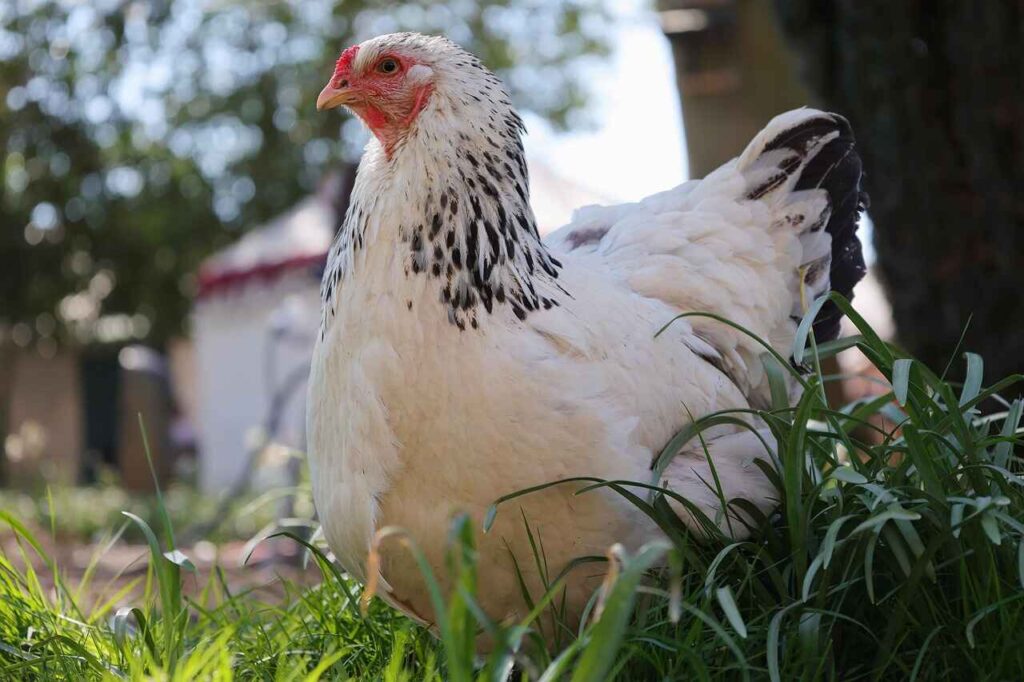
How Many Grapes Are Safe for Chickens?
Moderation is key when offering grapes to your chickens. These fruits are a great occasional treat packed with fiber and nutrients, but they are very low in protein—only about 1 gram per cup.
Too many grapes can lead to deficiencies in a balanced feed, causing issues like protein-deficient diets, which may result in a reduction in egg laying or lower hatchability of eggs. Chickens thrive on a varied diet, including foraged greens, bugs, and other essentials that provide the nutrients they need.
From my experience, offering a few grapes here and there keeps my flock happy and healthy, but I make sure not to overdo it. Overfeeding grapes can upset their digestion and even cause mild diarrhea, much like in humans. Stick to a well-rounded diet, and let grapes remain a tasty treat rather than a staple.
What is the Best Way to Give Grapes to Chickens?
The easiest way to give grapes to your chickens is to toss them into the yard and let the excitement begin. Watching them chasing and snagging each piece is so much fun! If the grapes are huge, you can chop them into bite-size pieces to make it easier for smaller birds.
Always use fresh grapes and avoid those that are moldy or spoiled, as they could cause health issues. Remember, moderation is recommended, as too many treats or sugar from grapes or raisins can upset their diet.
Also, never mix grapes into their dry feed, as their high water content could cause it to spoil or get moldy. To ensure every bird gets a chance, spread the grapes out in the yard, and keep an eye to ensure nothing is left buried or consumed too quickly.
From my experience, using common sense and providing a variety of treats keeps your flocks healthy and happy.
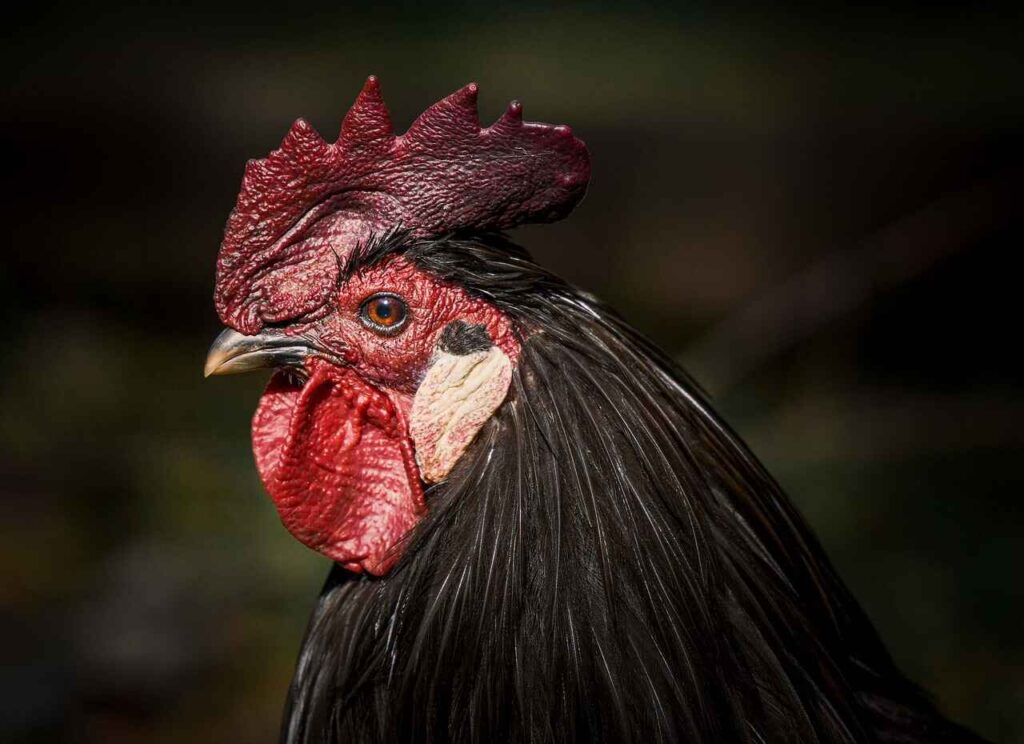
Can Chickens Choke on Grapes?
It’s highly unlikely for chickens to choke on grapes due to their lack of teeth. Instead, they tear the food into manageable pieces before they swallow it, allowing their gizzard to handle the chewing.
I’ve seen my chickens eat frogs and even mice without any issues, so a grape is rarely a concern. However, I always suggest being careful by introducing grapes slowly, offering only a few at a time, and monitoring for any potential problems. For added safety, you can chop the grapes into halves or quarters, making it easier for them to enjoy without risk of harm.
Are Grape Seeds Safe for Chickens?
Yes, chickens can safely eat grape seeds! Their highly functional digestive tract and muscular gizzard are designed to break down even tough foods. The gizzard contains stones and uses an acid-rich environment for effective grinding, ensuring that seeds pose no problem for them.
Just make sure they’re always provided with grit to aid digestion. Even small seeds are no issue, as chickens have evolved to handle such foods naturally.
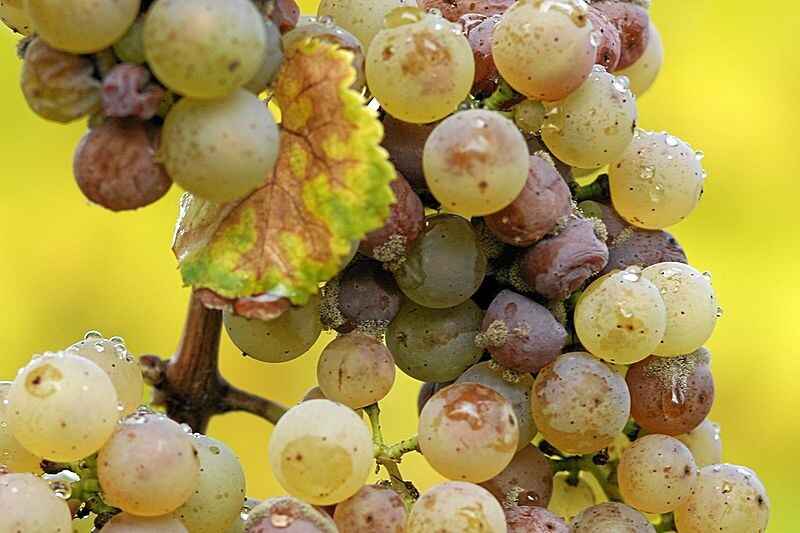
Should Chickens Eat Moldy Grapes?
No, you should never feed your chickens moldy grapes or anything else that has started to grow mold. If you find spoiled grapes, it’s best to throw them into the compost bin instead of risking your flock’s health.
Moldy food can harm chickens, so always check for freshness before adding anything to their diet. From my experience, keeping an eye on what you give your chickens ensures they stay healthy and happy.
Are Raisins Safe for Chickens?
You can technically give your chickens raisins, as they are not poisonous, but it’s better to stick with fresh grapes. Raisins have a highly concentrated sugar content, which isn’t ideal for their diet. If you want to toss them a treat, I’d personally recommend limiting it to 1-2 raisins per chicken. From my experience, keeping treats minimal is the best way to ensure your flock stays healthy and active.
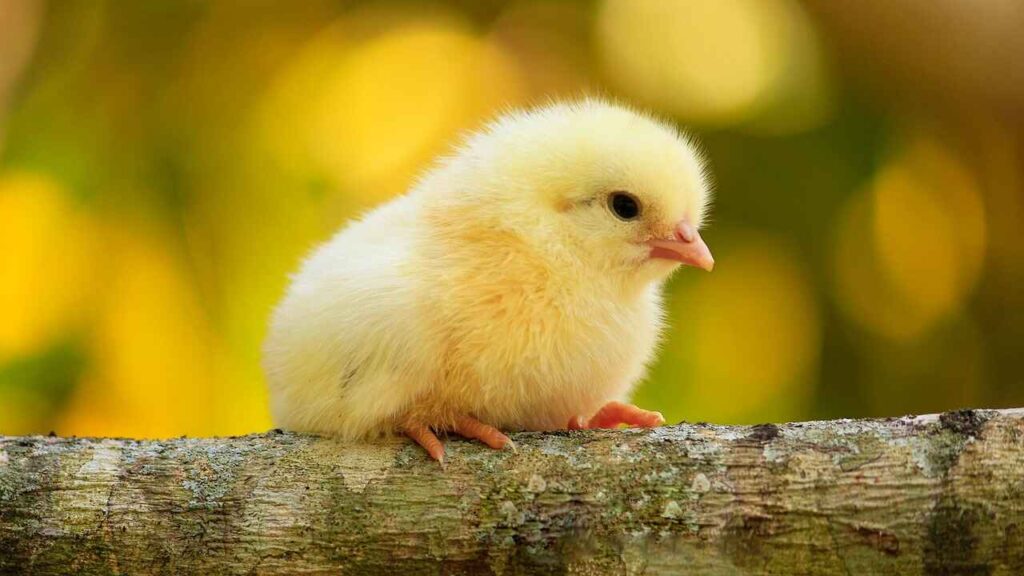
Can I Give Baby Chicks Grapes?
No, it’s not a good idea to give grapes to baby chicks. These young birds are delicate and need a well-balanced feed to support their rapid growth and development. Grapes are too big, and even if you cut or chop them into smaller pieces, they’ll waste energy trying to eat them.
Instead, focus their intake on high-protein options like fermented feed, a weekly ration of scrambled eggs, and foods rich in the essentials they need to grow and stay healthy. Personally, I’ve found it best to avoid giving low-protein snacks or treats to chicks, especially during the critical spring gardens season when time is limited.
Final Thoughts on Feeding Grapes to Chickens
Hand-feeding your chickens treats like grapes is a wonderful way to build trust and make them more tamer and friendlier. This activity can be a lot of fun and even relaxing, offering a break from the hustle of life.
While grapes provide beneficial nutrients and make a tasty snack, they should only be given in moderation to avoid health complications like poor egg laying. By consistently monitoring their diet and offering grapes sparingly, you can keep your chickens happy and healthy.
